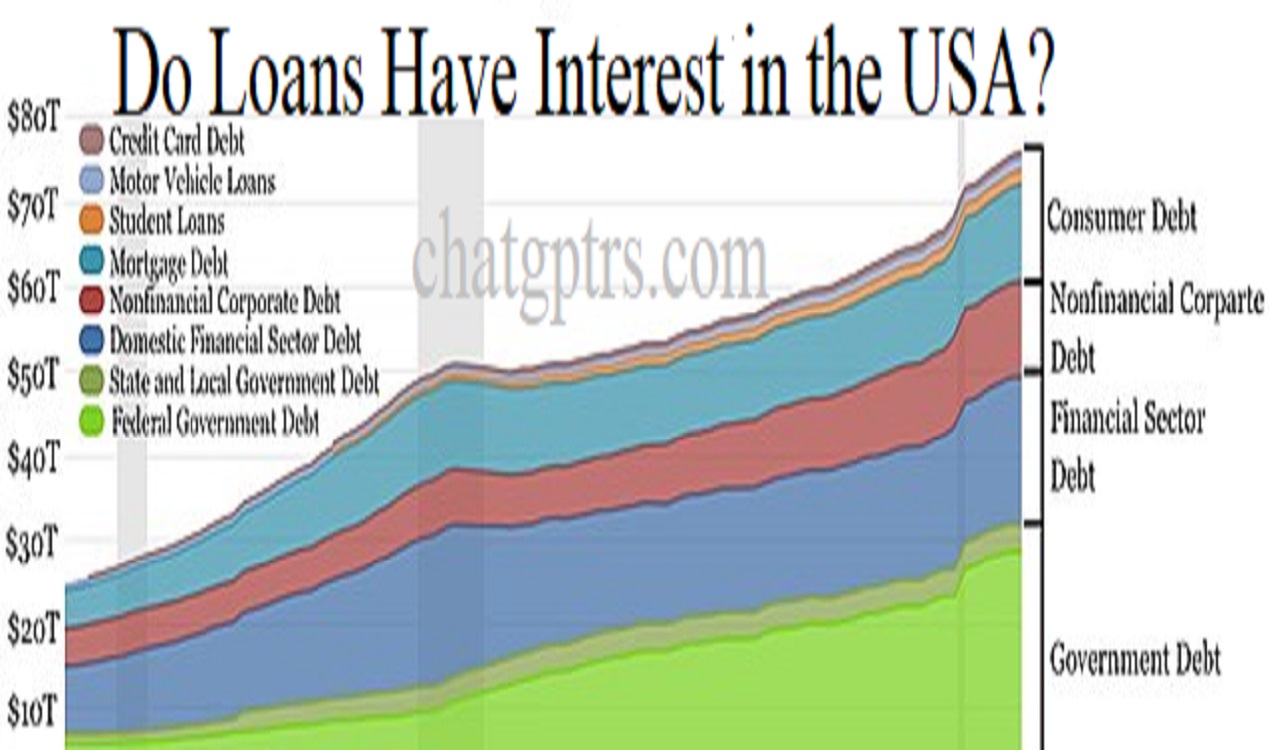If you are asked that do loans have interest in the USA? Yes, loans typically have interest. Interest is the amount of money that a borrower pays to a lender for the use of their money. The interest rate is the percentage of the loan amount that the borrower pays in interest each year.

Do Loans Have Interest in the USA?
The amount of interest that a borrower pays on a loan will depend on the loan amount, the interest rate, and the length of the loan term. For example, a borrower who takes out a $10,000 loan with an interest rate of 5% and a repayment term of 10 years will pay $500 in interest each year. Over the course of the loan, the borrower will pay a total of $5,000 in interest.
There are a few types of loans that do not have interest. These include:
- Gift loans: A gift loan is a loan that is given as a gift, with no expectation of repayment.
- Government loans: Some government loans, such as federal student loans, do not have interest.
- Zero-interest loans: Zero-interest loans are loans that have an interest rate of 0%.
Factors Affecting Interest Rates
The interest rate on a loan is affected by a number of factors, like:
- The borrower’s credit score: Borrowers with good credit scores typically qualify for lower interest rates than borrowers with bad credit scores.
- The loan amount: The interest rate on a loan will typically be higher for larger loan amounts than for smaller loan amounts.
- The length of the loan term: The interest rate on a loan will typically be higher for shorter loan terms than for longer loan terms.
- The type of loan: The interest rate on a loan will also vary depending on the type of loan. For example, the interest rate on a mortgage loan will typically be higher than the interest rate on a car loan.
How to Minimize Interest Charges
There are a few things that borrowers can do to minimize interest charges on their loans:
- Get a good credit score: Having a good credit score will help borrowers qualify for lower interest rates.
- Shop around for the best interest rate: Borrowers should compare interest rates from different lenders before taking out a loan.
- Take out a longer loan term: Borrowers may be able to get a lower interest rate by taking out a longer loan term. However, this will also mean making higher monthly payments.
- Make a down payment: Making a down payment on a loan will reduce the amount of money that the borrower needs to borrow, which can lower the interest charges.
- Pay off the loan early: Borrowers can save money on interest by paying off their loans early.
Conclusion
Loans typically have interest, which is the amount of money that a borrower pays to a lender for the use of their money. The interest rate is the percentage of the loan amount that the borrower pays in interest each year. The amount of interest that a borrower pays on a loan will depend on the loan amount, the interest rate, and the length of the loan term. There are a few types of loans that do not have interest, such as gift loans and government loans. Borrowers can minimize interest charges on their loans by getting a good credit score, shopping around for the best interest rate, taking out a longer loan term, making a down payment, and paying off the loan early.